Pay-per-click (PPC) advertising provides a powerful opportunity to ensure your brand is placed in front of the right audience, helping you boost brand awareness and increase sales. However, determining the right PPC pricing packages for this powerful marketing tool can be a daunting task.
In this article, we will break down the different pricing models used in PPC marketing and explore the factors that influence PPC pricing, going beyond just keyword bidding.
Why Use PPC Advertising?
Pay-per-click advertising offers several compelling reasons for businesses to embrace this powerful digital marketing channel. It allows marketers to harness the power of keyword targeting, audience segmentation, and real-time analytics, building a marketing campaign that will give you the edge you need in this fiercely competitive digital landscape.
With an exceptional ability to drive targeted traffic, increase brand visibility and generate measurable results, PPC advertising is essential to any successful marketing strategy. Not convinced?
Here’s a breakdown of some of the perks to consider:
- Versatile tool contributing to business goals: PPC aligns website traffic with your end goals, ensuring that your marketing efforts are purpose-driven. This includes a focus on conversion tracking, driving exposure, thought leadership, lead generation, and sales.
- Accessible performance data: It provides insights on impressions, clicks and conversions, enabling data-driven decision-making to evaluate campaign impact.
- Full campaign control: Advertisers have precise targeting, budget, and bid control, scaling or pausing campaigns based on real-time performance and budgets.
- Swift market entry: Quick campaign setup allows you to gain a competitive edge in reaching prospects and customers promptly.
- Targeting options for audiences: It offers diverse targeting options like keywords, demographics, behaviors, and remarketing, reaching potential and existing customers.
- Valuable digital marketing insights: Data generated can inform SEO, content strategies, and market analysis, providing understanding of the audience, competition, and growth opportunities.
- Amplified online marketing synergy: PPC and SEO strategies can inform each other for optimization. It complements content marketing, driving traffic and maximizing ROI.
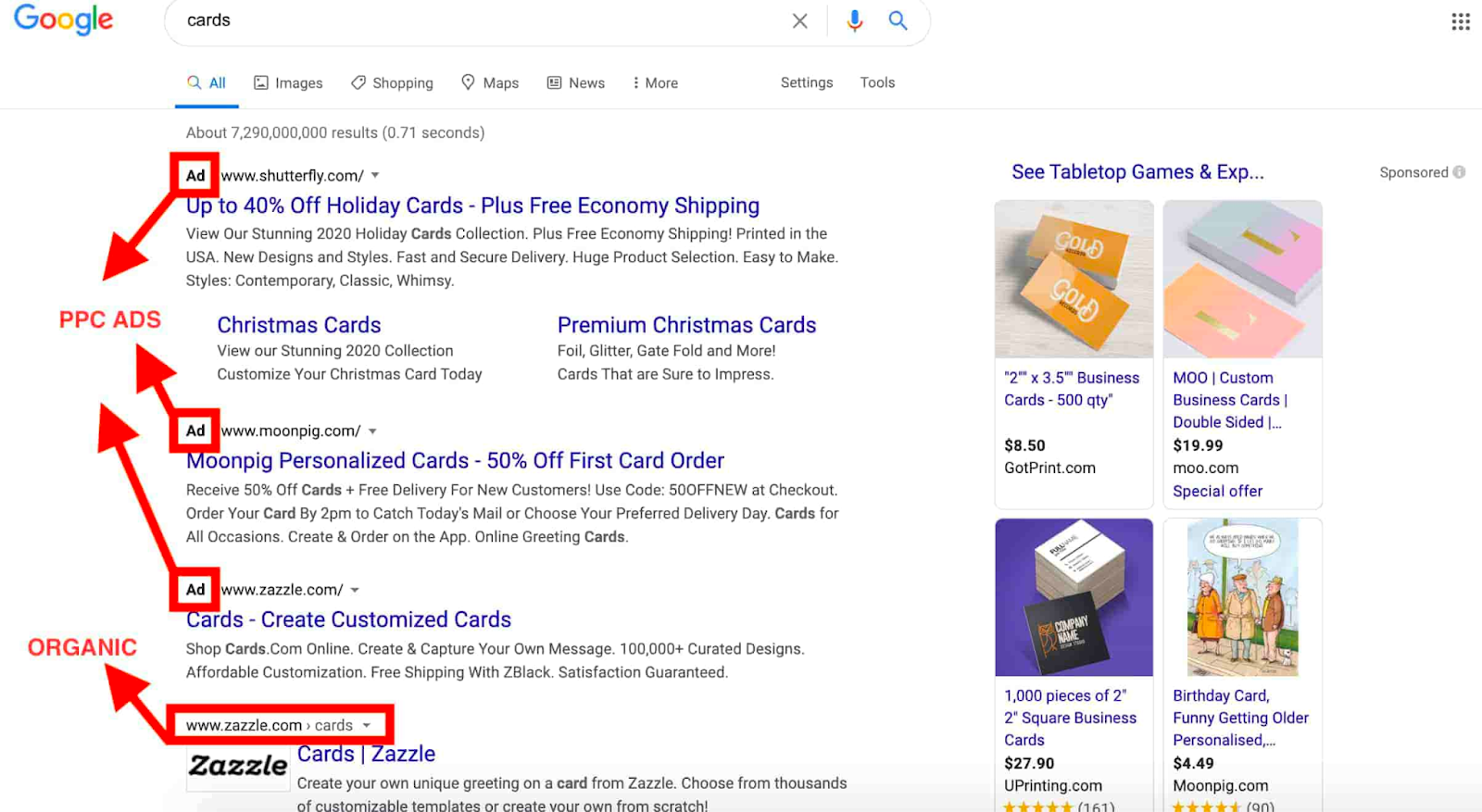
Learn More: Multi-Channel PPC Advertising Case Study: Boosting Your ROI
What Do PPC Packages Consist of and Why Are They Important?
Pay per click packages are like all-in-one solutions offered by PPC agencies to help you achieve your goals. You get a range of services included in these packages specifically designed to optimize your PPC campaigns and deliver results.
The best thing about affordable PPC packages is that they aren’t one-size-fits-all. Reputable marketing agencies understand that every business is unique, so they offer different tiers and customization options within their advertising packages.
Tailoring the offerings to match your objectives and requirements will provide you with the most effective results-targeted solutions for your business. Customized packages can help you maximize your campaign’s potential and drive the success you desire.
For example, here’s what you’ll get when you opt for PPC packages from us, Single Grain:
- Competitor Analysis: Gain valuable insights by thoroughly analyzing your industry competitors. This can help you develop competitive strategies.
- Ad Creation and Optimization: Craft compelling display ads that resonate with your audience and continuously optimize them to monitor performance and increase click-through rates.
- ROI Measurement and Optimization Tips: Use advanced tracking and analytics tools to measure the return on investment of your campaigns. Based on the insights gathered, receive valuable optimization recommendations to enhance your campaign outcomes.
- In-Depth Keyword Discovery: Keep updating relevant keywords to your business. Connect with your ideal audience by targeting the right keywords.
- Regular Campaign Progress Reporting: Stay informed about the progress of your PPC campaigns through detailed reports. Using these reports, you can improve campaign effectiveness with data-driven decisions.
- Advanced Campaign Consulting: Receive expert guidance on various aspects of your campaigns. From sophisticated strategies like geo-targeting to dayparting, you can leverage expert advice to maximize the effectiveness of your campaigns.
Learn More: How to Perform Marketing Competitor Analysis (+ 6 Best Tools Comparison)
How Much Does a PPC Package Cost?
The cost of your PPC strategy depends on several factors. You should consider how you manage your campaigns (whether you do it yourself, through an agency, or with a consultant), how often you update your campaigns, and how much time you dedicate to them.
Factors such as your business size and industry can also affect your ROI.
When setting a budget for PPC advertising, it’s important to consider your unique circumstances and goals. There’s more involved in the cost of advertising than your company’s size.
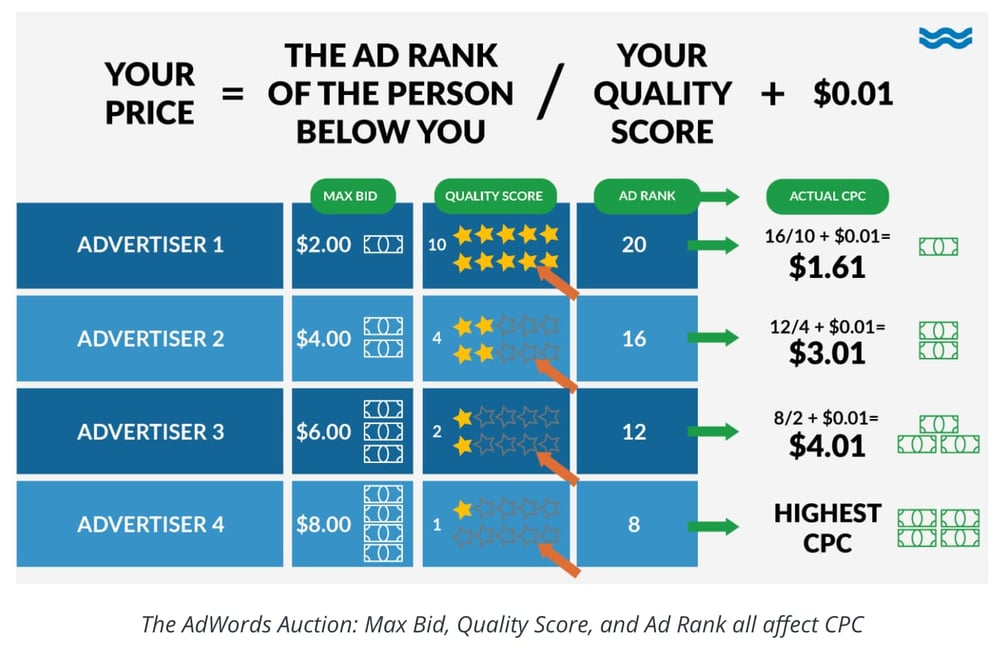
Consider the factors that may impact your business and its marketing goals. Examples of outside influence include changes in your overall industry and significant moves made by your competitors that you must account for to position yourself successfully.
By conducting a thorough evaluation, you can determine a suitable digital marketing budget that aligns with your brand’s marketing needs and maximizes the effectiveness of your advertising efforts.
What Determines the Cost of PPC Management?
Your PPC management pricing can vary depending on several factors that influence your campaign’s overall cost, such as your goals, budget, industry, and your chosen ad networks.
Online advertising involves bidding on keywords that match the online searches of your potential customers. It’s like a competitive game where your industry and the products or services you offer play a crucial role in determining which keywords to focus on.
Consider the case of a highly competitive financial services company. In such a competitive industry, businesses must be more aggressive with their bid strategies to ensure their display ads effectively generate sales and revenue.
For example, if you provide investment advisory services, targeting keywords like “financial planning,” “investment advice,” or “wealth management” can help you reach individuals who are actively seeking financial guidance.
Google Ads and Microsoft Advertising are two of the most popular PPC advertising platforms. Each platform requires a tailored strategy that aligns with its unique audience and features.
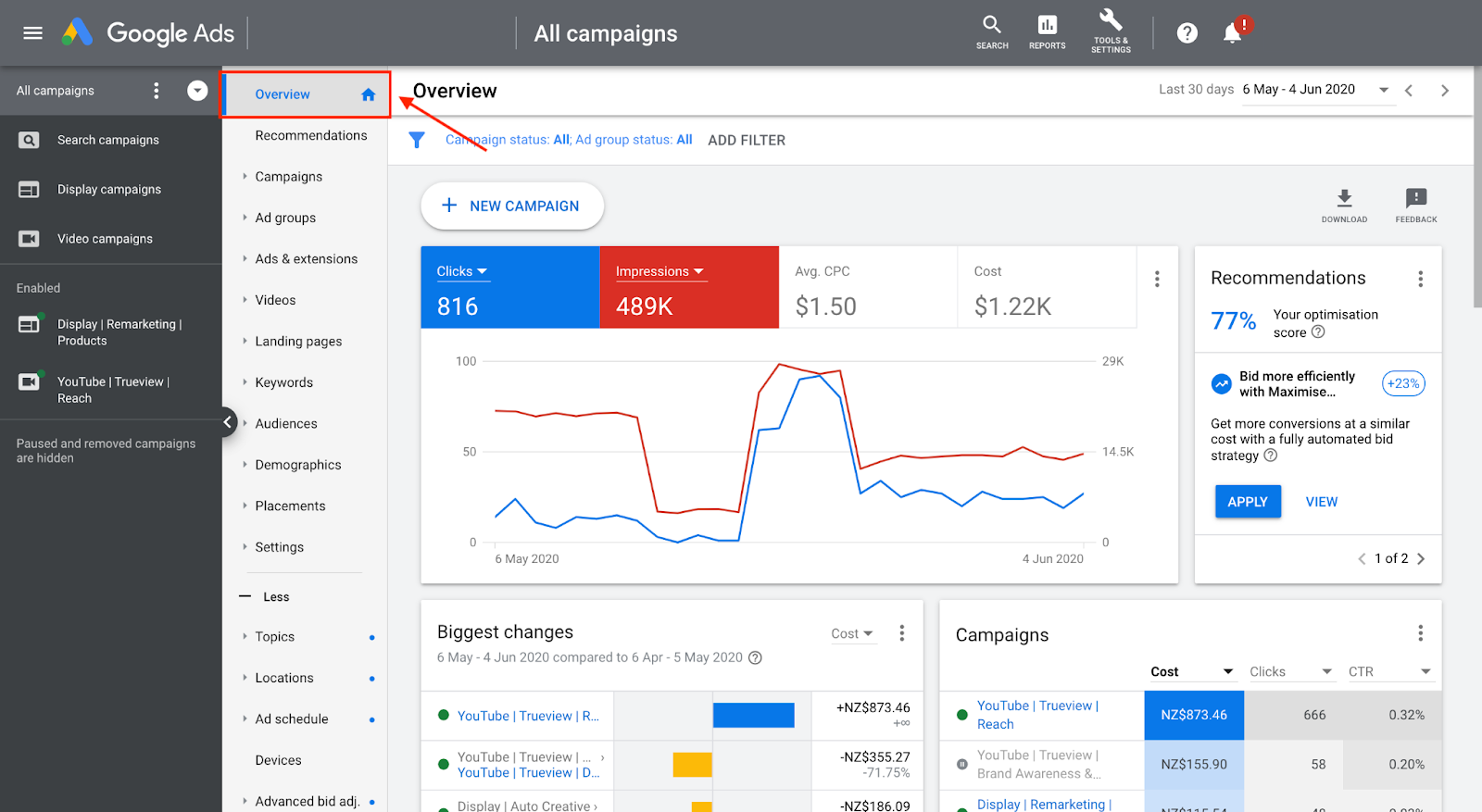
Google Ads offers a wide reach. It provides extensive targeting options, allowing you to showcase your financial services to a broad online audience. On the other hand, Microsoft Advertising may give you access to a specific demographic that closely matches your target market.
What Is a Good PPC Management Fee?
Choosing the right pricing model for PPC management depends on your preferences and how you want to handle billing. Essentially, you have a few options to consider.
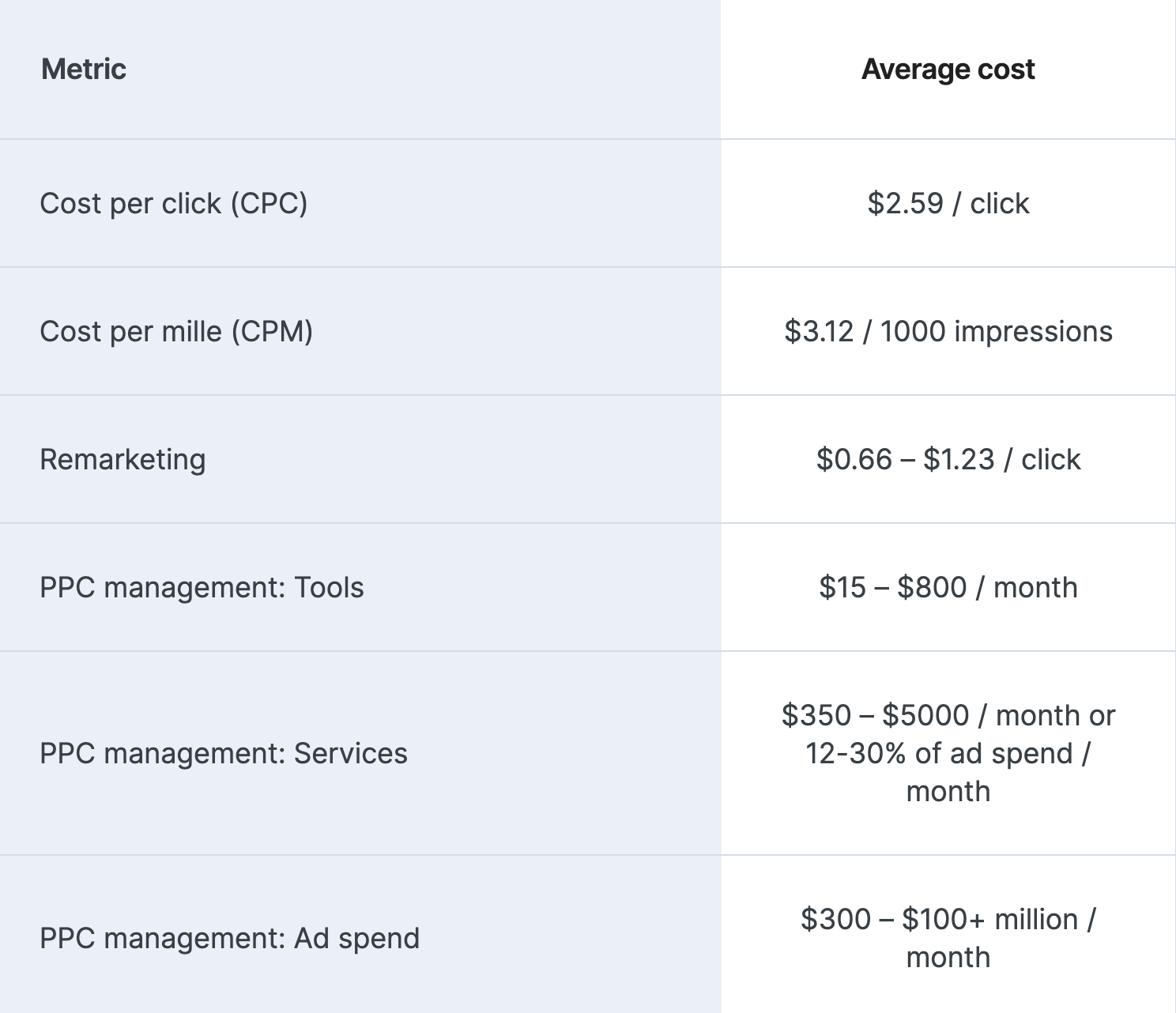
Let’s break down these pricing models:
- Flat Fee: The set fee provides predictable pricing for your budget but doesn’t factor in the fact that some accounts may require more attention than others. This may impact the time allocated to your advertising efforts.
- Hourly Rate: Pricing hourly allows agencies to accommodate the different budgets of each client better. However, it also penalizes those that can work more efficiently, requiring less time to achieve the same (or better) results.
- Percentage of Ad Spend: This may appear to be an effective way to allocate time based on the work required for larger accounts, however, it focuses on encouraging higher ad spend for higher agency income. This may result in recommendations that aren’t always focused on the client first.
- Performance-Based: While many clients prefer this payment approach as it focuses on the agency driving the highest results, it fails to account for the many aspects of a marketing campaign that are unpredictable or out of the agency’s control.
- Hybrid: This billing style is arguably the most complicated for calculating and helping clients understand where their budget is being used. But it allows flexible and individualized pricing to meet every client’s unique needs and requirements.
Average Costs of PPC Advertising
When it comes to PPC advertising, finding the right budget requires careful consideration of the costs associated with successful campaigns. On average, businesses with effective advertising campaigns invest between $9,000 and $10,000 per month. However, it’s important to remember that these numbers can vary depending on industry, company size, and campaign objectives.
Industries like finance and insurance allocate significantly higher budgets to PPC advertising, surpassing other sectors. In fact, these industries collectively invest a staggering $1.2 billion in PPC campaigns.
Retailers also make substantial investments in online advertising. Individual companies typically have an ad spend of about $40-$50 million annually on Google AdWords alone.
Amazon allocates over $50 million annually to their PPC advertising strategies.
These significant investments demonstrate the potential returns and effectiveness of well-executed campaigns with ample resources. However, businesses must analyze their industry, company size, and marketing objectives to determine an appropriate budget for their PPC endeavors.
How Do You Calculate PPC Price?
When establishing your PPC budget, there are several key factors to consider. First and foremost, conversion tracking plays a crucial role in determining the effectiveness of your advertising efforts. A higher conversion rate means you can confidently allocate more budget towards PPC.

Another important consideration is your customers’ average lifetime value (LTV). Understanding the potential return on investment can help guide your budget decisions.
How to Determine Your PPC Budget in 4 Steps
While there isn’t a one-size-fits-all solution, avoid allocating your entire budget without first being mindful of the potential results. To help you estimate the appropriate budget for your business, let’s explore a four-step framework that can provide valuable guidance.
Step 1: Identify the Best Keywords for Your Marketing Objectives
To establish a suitable PPC budget for your Search campaign, it’s essential to understand the search terms potential customers use to find your product or service.
While this process is straightforward for e-commerce stores, it can be more challenging when your product addresses a niche problem. In such cases, tracking the effectiveness of your marketing investment becomes even more crucial.
Focus your budget on high-intent keywords that indicate immediate purchase intent. These are the keywords that potential customers are likely to use when they are ready to make a purchase or take a desired action. This will help you attract qualified leads who are more likely to convert.
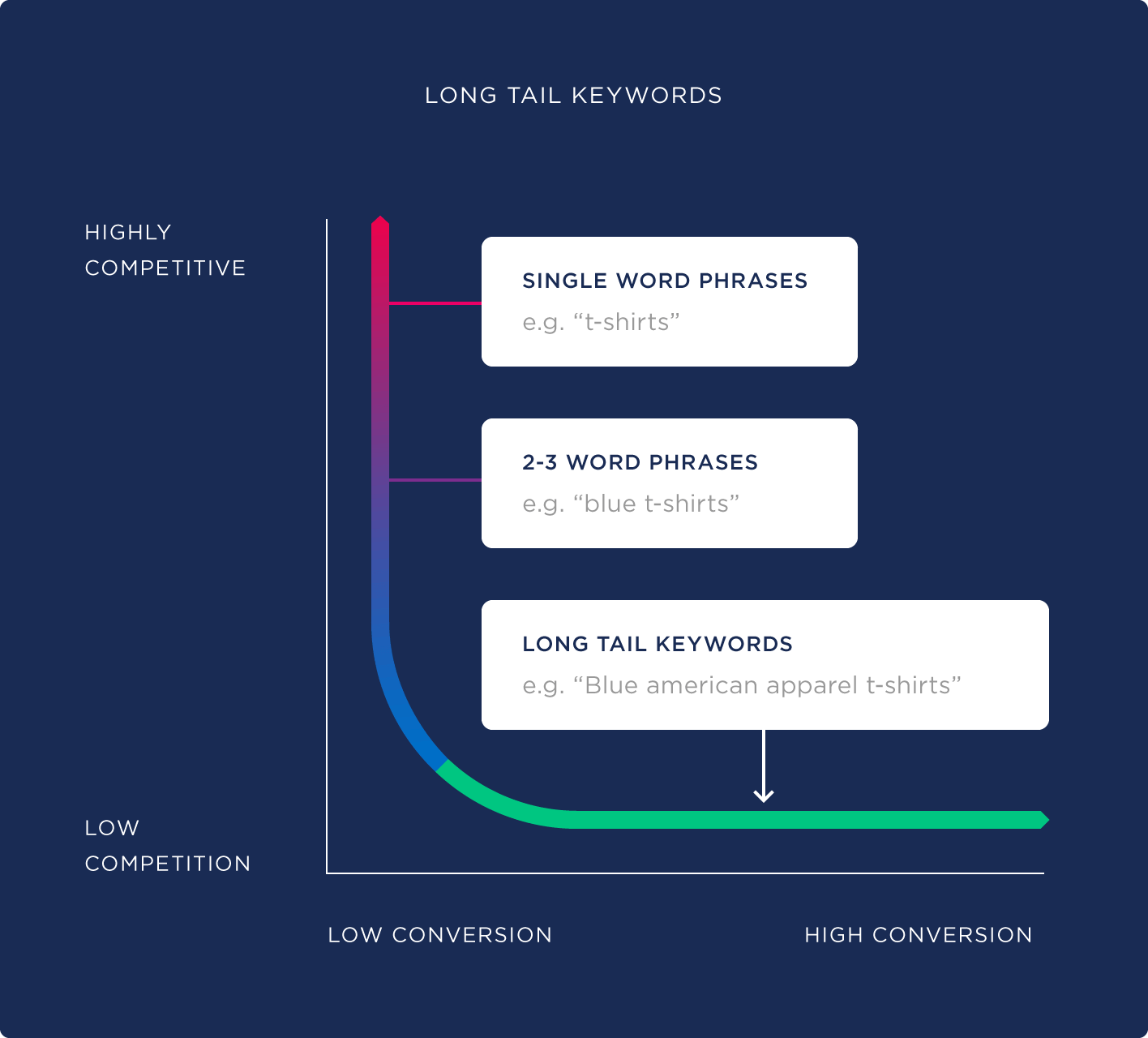
Learn More: Targeting Branded vs. SEO Keywords: Which Should You Focus On?
Step 2: Run the Keyword Planner Report
Google’s Keyword Planner is a powerful tool that can greatly enhance your PPC campaigns by helping you refine your target audience and budget. It offers a wide range of options that allow you to discover new keywords, combine keyword lists, access click and cost performance forecasts, and analyze search volume data and trends.
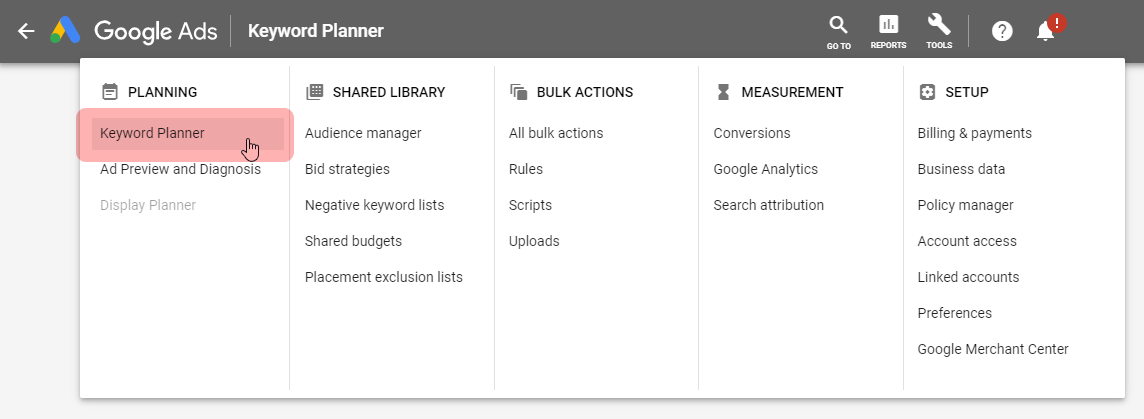
Within each option, you’ll find comprehensive lists or reports that can be customized and filtered based on various elements. These include average monthly searches, ad impression share, and suggested bids based on the CPC that other advertisers pay for similar keywords.
Learn More: How to Use Google Keyword Planner for Content Creation
Step 3: Do the Math
Determining the appropriate budget for your business can be approached using a sequence formula that PPC experts often follow. This formula provides insights into your campaigns’ estimated reach and engagement, helping you refine your budget and optimize your strategy. Here’s how it works:
- Multiply the average monthly searches of relevant keywords (obtained from the Keyword Planner report) by a targeted search impression share, typically set at 50% or 70%. This calculation gives you an estimate of the potential number of impressions your display ads could receive.
- Determine the potential volume of clicks by multiplying the number of impressions by an expected click-through rate (CTR). The CTR represents the percentage of users likely to click on your display ads after seeing them.
Now that you know the potential volume of clicks, you can now calculate your PPC budget. Multiply this value by the average cost per click (CPC) obtained from the Keyword Planner report. The resulting figure represents your potential ad spend.
Step 4: Estimate Your Profitability
There isn’t a dedicated digital marketer out there who doesn’t like assessing return on ad spend (ROAS) as a metric to measure the performance of digital advertising. It provides valuable insights into an ad campaign’s effectiveness by comparing the amount spent on pay-per-click advertising to the total revenue generated.

Estimating the target ROAS is not as complicated as it may seem. You just need to calculate the ratio between the ad campaign expenditure and the revenue it generates.
However, in many cases, ROAS only accounts for the revenue from a customer’s initial purchase. For SaaS businesses that operate on a subscription model, it’s crucial to factor in the customer’s lifetime value (LTV) to understand profitability.
Calculating LTV requires considering factors such as the average sale value, profit margins, churn rates, average number of transactions per customer, and average customer lifespan. To determine which campaigns are the most profitable, comparing the customer’s LTV to the associated customer acquisition costs (CAC) is important.
Learn More: 9 Great Ways to Leverage PPC for SaaS Companies in 2023
How Much Is PPC per Hour?
The cost of PPC advertising on an hourly basis can fluctuate based on different factors. It all comes down to the PPC model you choose and the platform you use.
Here’s an overview of the costs you can expect for various PPC services:
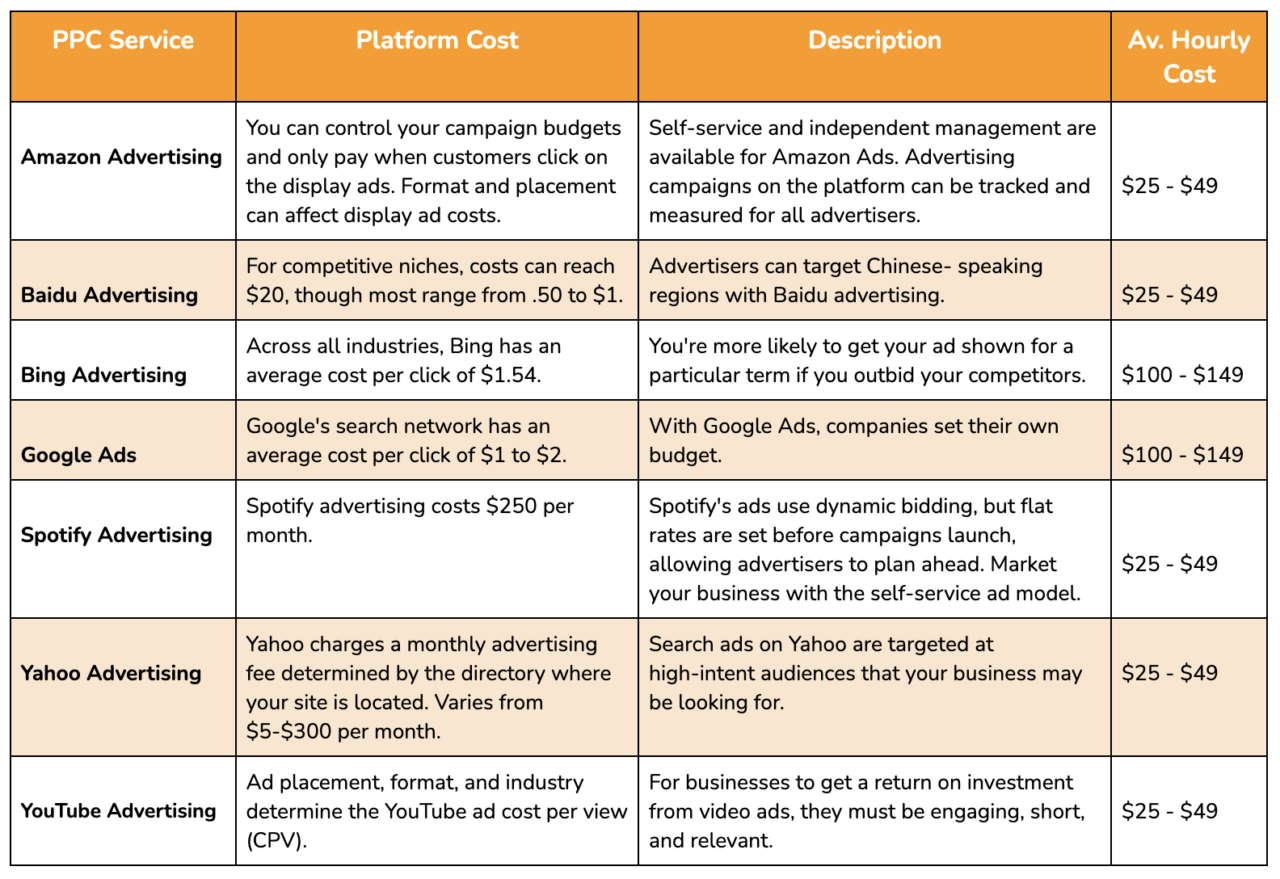
Keep in mind that the hourly costs mentioned here are just averages and can differ based on the specific requirements of your campaign, the competitiveness of your industry, and other factors. It’s crucial to grasp the pricing models and associated costs for different PPC services so you can make informed decisions when planning your PPC campaign budget.
Last Word on PPC Pricing Packages
When executed effectively, a well-designed PPC campaign combined with the right pricing package can deliver exceptional results and significantly contribute to the success of your online advertising efforts.
By continuously optimizing your PPC strategy and leveraging a suitable pricing package, you can stay connected with your audience, outperform your competitors, and propel your business towards long-term success.
If you’re ready to grow your business with PPC ads, Single Grain’s ad experts can help!👇






